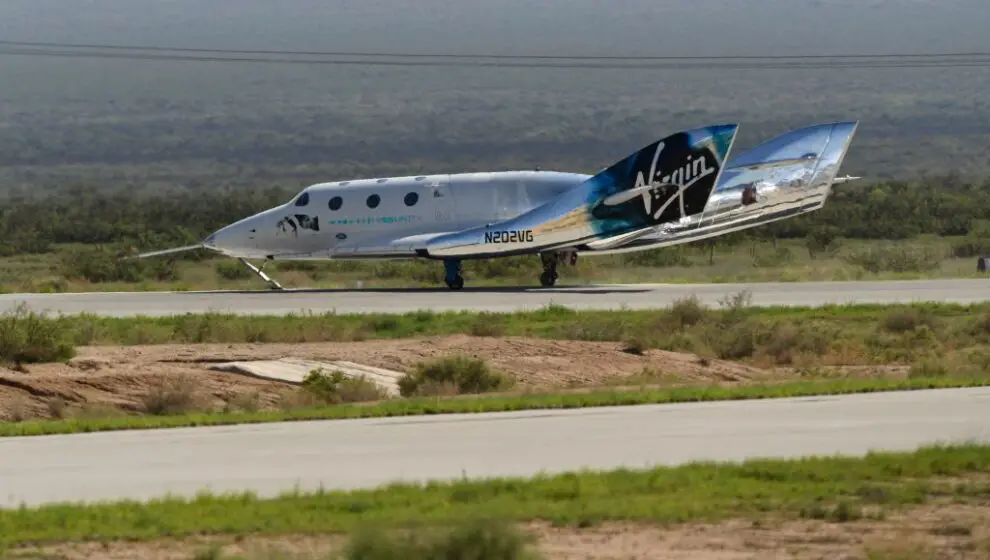Late Thursday morning, Virgin Galactic celebrated the touchdown of the first successful commercial flight of its space plane—an initial success that left Wall Street lukewarm about the future of the company.
Key Details
- VSS Unity successfully completed its mission of flying 52.9 miles above the surface of the earth, attaining speeds of Mach 2.88.
- The crew included Italian Air Force Colonel Walter Villadei, Lieutenant Colonel Angelo Landolfi, and National Research Council of Italy engineer Pantaleone Carlucci, as well as 13 research payloads.
- The plane glided back down for a safe landing after a 75-minute flight at Spaceport America in New Mexico.
- VSS Unity is scheduled for a second mission in August, beginning to provide service to its backlog of 800 clients who have paid between $250,000 and $450,000 for a ticket.
- Virgin Galactic’s stock dropped as investors realized the company was still years away from scaling up and being profitable.
Why It’s Important
The successful flight marked the culmination of 19 years of research and development for Sir Richard Branson’s experiment in commercial space tourism. And it could not have come soon enough, with the company reeling from the recent disintegration of its sister company Virgin Orbital. Virgin Galactic has suffered a 14.2% stock hit since Thursday morning.
The company was founded in 2004 as a space-tourism company and had planned to begin launching customers in the early 2010s, but was hit by several delays. The crash of the VSS Enterprise in California’s Mojave Desert in 2014 destroyed the program’s primary space plane and set the program back years until the unveiling of VSS Unity in 2016. With five successful flight tests between 2018 and 2023, it finally entered commercial service yesterday.
Virgin Galactic has consistently lost money since its founding, reporting its highest losses in the first quarter of this year at $159 million. The company has a significant hurdle to overcome, facing limited demand, limited revenue, increasing debt, and less than two years of liquid capital to dig its way out of its current situation, SeekingAlpha alleges.
Notable Quote
“The Virgin fleet, which consists of only one spacecraft currently, is capable of only one flight per month, and that flight rate is not high enough to allow the firm to become free cash flow positive. Unfortunately, it will likely not happen until the 2027 timeframe, when the company’s next-generation Delta-class space fleet is available in numbers to generate large numbers of annual space flights. I think today reflects the stock market’s realization that the path to positive cash flow will be a multi-year endeavor,” Alembic Global Advisors Director Pete Skibitski tells Fox Business.

